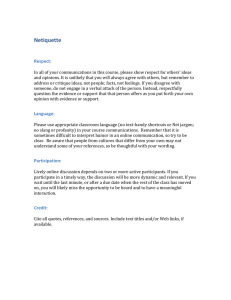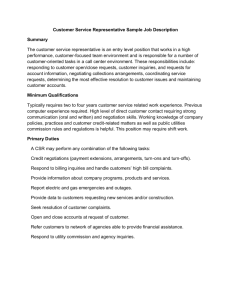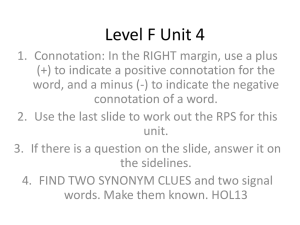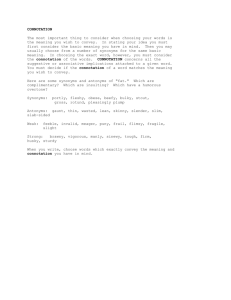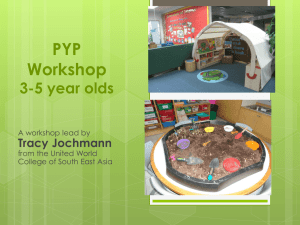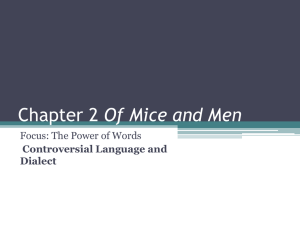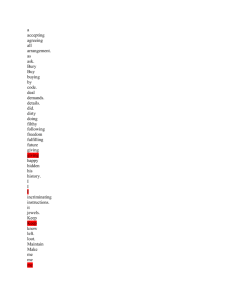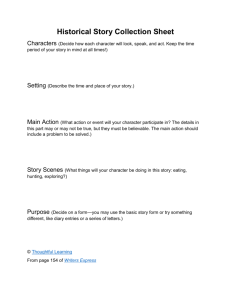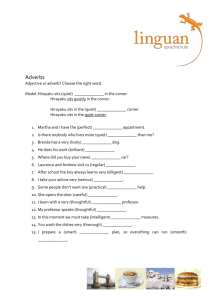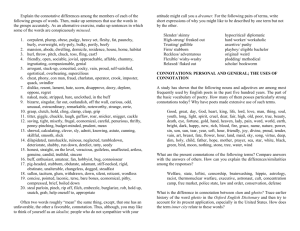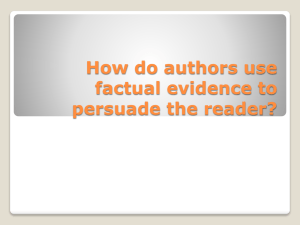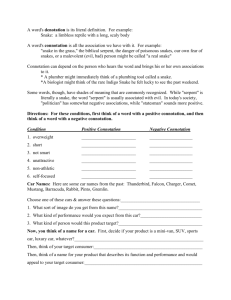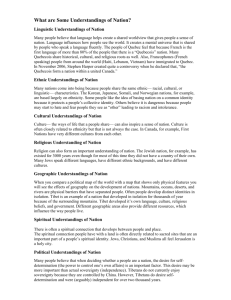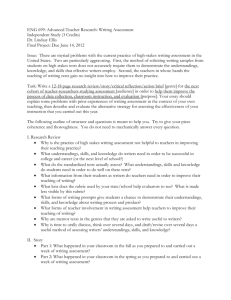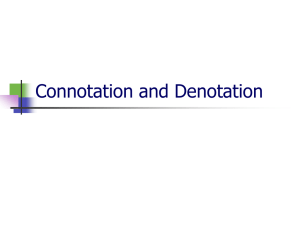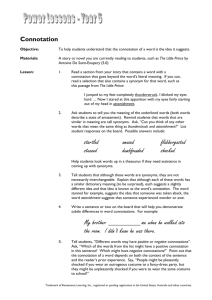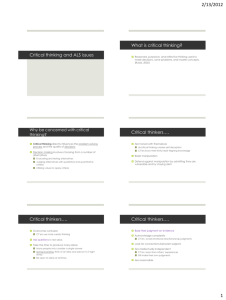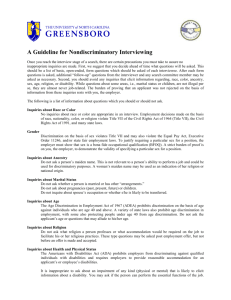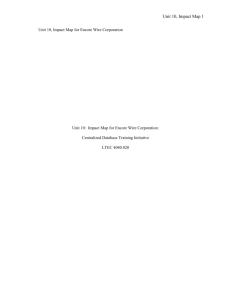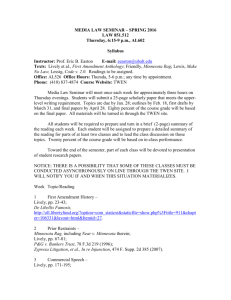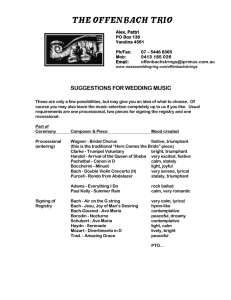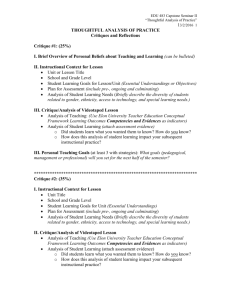What is an Essential Question Wiggins article
advertisement
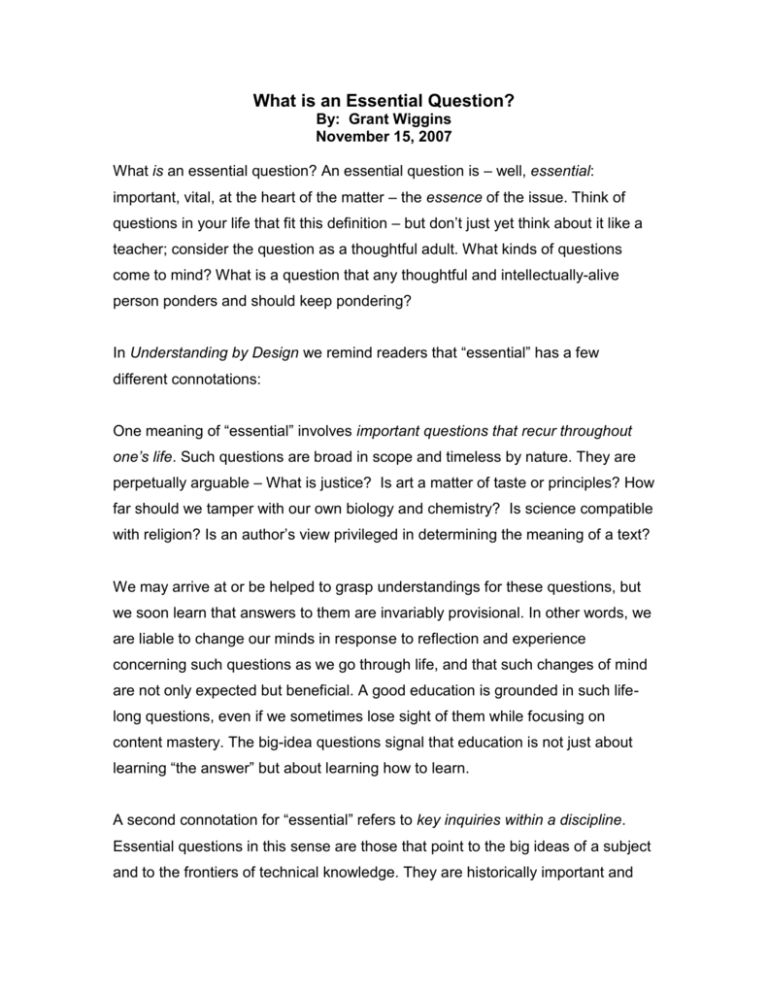
What is an Essential Question? By: Grant Wiggins November 15, 2007 What is an essential question? An essential question is – well, essential: important, vital, at the heart of the matter – the essence of the issue. Think of questions in your life that fit this definition – but don’t just yet think about it like a teacher; consider the question as a thoughtful adult. What kinds of questions come to mind? What is a question that any thoughtful and intellectually-alive person ponders and should keep pondering? In Understanding by Design we remind readers that “essential” has a few different connotations: One meaning of “essential” involves important questions that recur throughout one’s life. Such questions are broad in scope and timeless by nature. They are perpetually arguable – What is justice? Is art a matter of taste or principles? How far should we tamper with our own biology and chemistry? Is science compatible with religion? Is an author’s view privileged in determining the meaning of a text? We may arrive at or be helped to grasp understandings for these questions, but we soon learn that answers to them are invariably provisional. In other words, we are liable to change our minds in response to reflection and experience concerning such questions as we go through life, and that such changes of mind are not only expected but beneficial. A good education is grounded in such lifelong questions, even if we sometimes lose sight of them while focusing on content mastery. The big-idea questions signal that education is not just about learning “the answer” but about learning how to learn. A second connotation for “essential” refers to key inquiries within a discipline. Essential questions in this sense are those that point to the big ideas of a subject and to the frontiers of technical knowledge. They are historically important and very much “alive” in the field. “What is healthful eating?” engenders lively debate among nutritionists, physicians, diet promoters, and the general public. “Is any history capable of escaping the social and personal history of its writers?” has been widely and heatedly debated among scholars for the past fifty years, and compels novices and experts alike to ponder potential bias in any historical narrative. There is a third important connotation for the term “essential” that refers to what is needed for learning core content. In this sense, a question can be considered essential when it helps students make sense of important but complicated ideas, knowledge, and know-how – findings that may be understood by experts, but not yet grasped or seen as valuable by the learner. In what ways does light act wave-like? How do the best writers hook and hold their readers? What models best describe a business cycle? By actively exploring such questions, the learner is helped to arrive at important understandings as well as greater coherence in their content knowledge and skill. A question is essential when it: 1. causes genuine and relevant inquiry into the big ideas and core content; 2. provokes deep thought, lively discussion, sustained inquiry, and new understanding as well as more questions; 3. requires students to consider alternatives, weigh evidence, support their ideas, and justify their answers; 4. stimulates vital, on-going rethinking of big ideas, assumptions, and prior lessons; 5. sparks meaningful connections with prior learning and personal experiences; 6. naturally recurs, creating opportunities for transfer to other situations and subjects. Here is a variety of subject-area examples of such questions: How well can fiction reveal truth? Why did that particular species/culture/person thrive and that other one barely survive or die? How does what we measure influence how we measure? How does how we measure influence what we measure? Is there really a difference between a cultural generalization and a stereotype? How should this be modeled? What are the strengths and weaknesses of this model? (science, math, social sciences) Note that an essential question is different from many of the questions teachers typically ask students in class. The most commonly asked question type is factual – a question that seeks “the” correct answer. For example, in a history class, teachers are constantly asking questions to elicit recall or attention to some important content knowledge: “When did the war break out? Who was President at the time? Why, according to the text, did Congress pass that bill?” Such questions are clearly not “essential” in the sense discussed above. Rather, they are what we might call ‘teacherly’ questions – a question essential to a teacher who wants students to know an important answer. Is such a leading question bad? No. There are all sorts of good pedagogical reasons for using a question format to underscore knowledge or to call attention to a forgotten or overlooked idea. But those questions are not “essential” in the sense of signaling genuine, important and necessarily-ongoing inquiries. Teachers have to be careful not to conflate two ideas: “essential to me in my role as a teacher” and “essential to anyone as a thinking person and inquiring student for making meaning of facts in this subject.”
